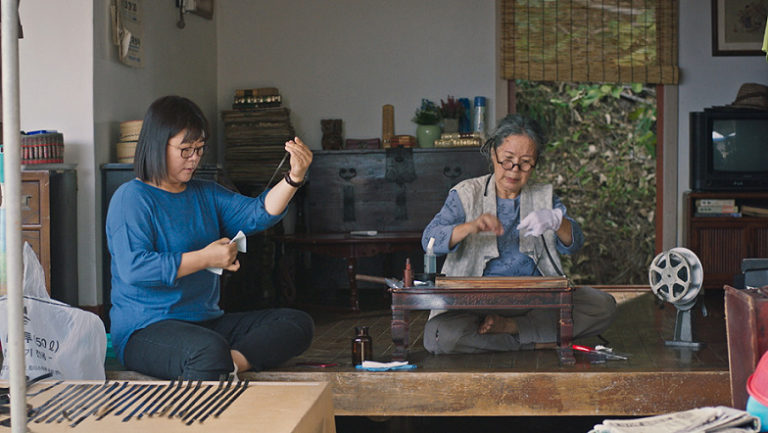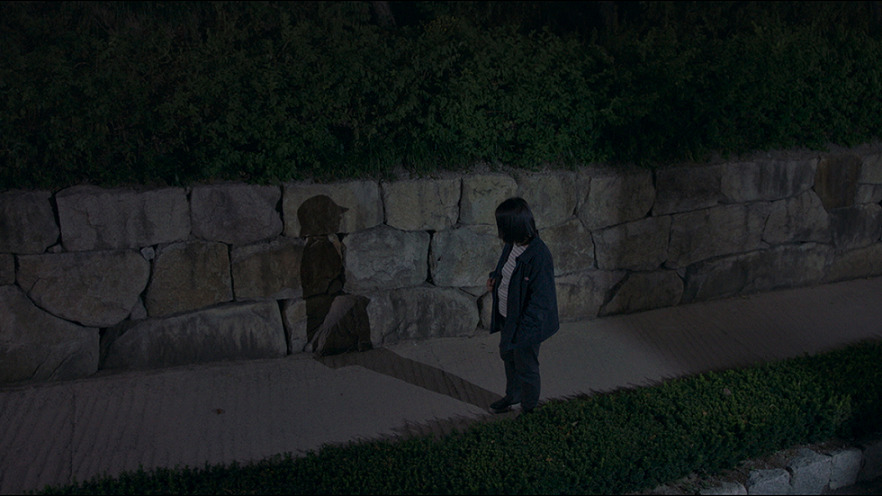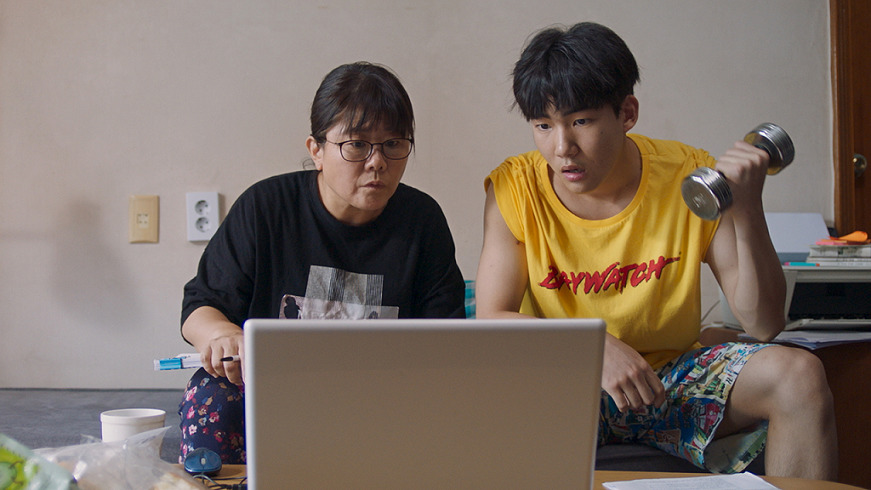
Those who work in an industry like cinema typically have their inspirations that they look up to, the artists whose films they saw at an important moment of youth and were formative in their own creative developments. In some cases, they have the opportunity to meet their heroes and ask them about the projects that so moved them, and in others, that option isn’t available or a true masterpiece is only discovered and appreciated once someone is gone. The process of restoring someone else’s work is a formidable one, with the added challenge of achieving their distinctive vision without them giving new fresh input, displayed poignantly in Hommage.
Ji-wan (Lee Jung-eun) is a filmmaker whose life and career aren’t going terribly well, and she sees the chance for that to change when she’s able to immerse herself in her latest assignment. Given the task of restoring a film from the 1960s made by a woman believed to be the first female Korean filmmaker, Ji-wan has an arduous path to forge given the substantial amount of missing footage and the difficulty she finds in attaining answers from those who are still alive and might offer her some chance of figuring out the director’s original intentions from all those scattered pieces.

There is a clear love for cinema on display here in the sixth film from filmmaker Shin Su-won. At many points throughout the film, Ji-wan goes with her friend and colleague to the movies, where they sit in the same assigned seats separated by one space, surrounded by no one since, apparently, few people visit theaters these days. It’s still a stark difference from one run-down theater on the brink of closing that she visits in the hopes of recovering the reels she needs, long abandoned by all except those who either sincerely love cinema like her or show up for another kind of theatrical experience where they won’t be recognized.
Along the way in her search for the keys to finish her project, Ji-wan also reckons with her personal life and the things she wishes would be different. Her husband arrives home each night in a sour mood demanding that she feed him and get him a drink, evidently not under the impression that the work she does all day is anywhere near as valid as his. He doesn’t behave at all like an adult, to the point that her son reminds his father that it’s his turn to do the dishes, as if the two of them share chores that by default would otherwise go to the only one in the household who fills in where the gaps constantly are.

As Hommage goes on, there is a deeper picture of her son and the way in which he interacts with the world, shown most through how he talks with his mother. She hardly demonstrates much enthusiasm but can’t help but be moved by that which she finds in her search for footage and a cohesive finished product. As someone who tells stories for a living, she should be aware of the parallels that sneak up on characters when they least expect it, but she’s too buried in her work to be adequately prepared for what real life might throw at her.
Jung-eun, who will be best known to international audiences for her role as the housekeeper in Parasite, delivers strongly in this lead role, imbuing Ji-wan with a sense of having been through too much to retain any enthusiasm for her profession who nonetheless experiences a revitalization of sorts as she tackles her most difficult and most rewarding project in quite some time. Rather than pay specific tribute to individual filmmakers, this film, with a fitting title, is a celebration of the art form in general, which may evolve from decade to decade but retains the same grounding elements that make it what it is.
Grade: B+
Check out more of Abe Friedtanzer’s articles.
Hommage makes its North American premiere in the Viewpoints section at the 2022 Tribeca Festival.

